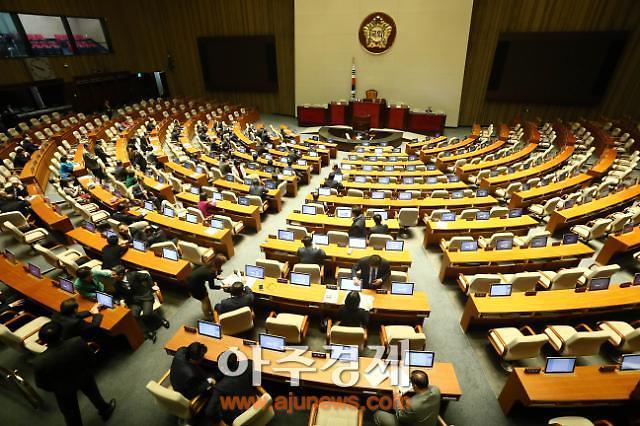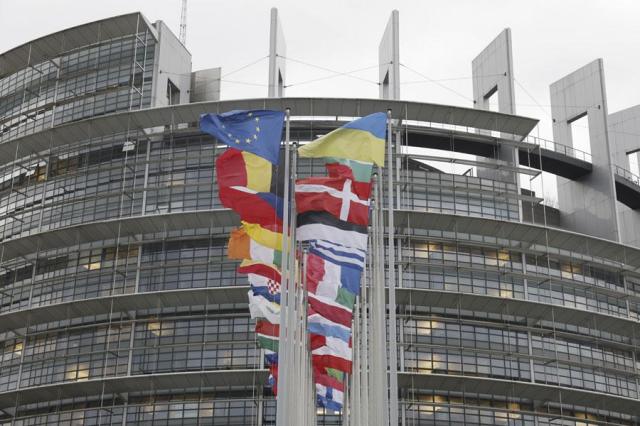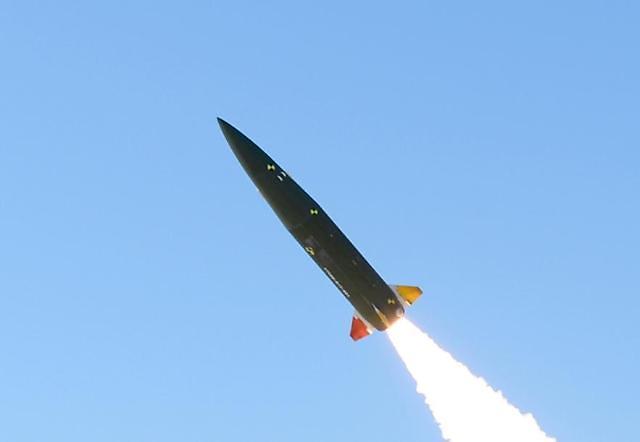
[Photo by Namkung-Jinwoong = timeid@ajunews.com]
After days of wrangling between ruling and opposition parties, South Korea's National Assembly approved early on Thursday the government plan to increase total spending by 2.9 per cent to 386.4 trillion won ($332 billion).
The assembly is required by law to approve government spending plans by Dec. 2 for the coming fiscal year, which begins Jan. 1. The decision was made just past midnight as proceedings were delayed by conflict between parties, a common occurrence
The passage of the budget had been delayed as the ruling Saenuri Party and the main opposition New Politics Alliance for Democracy wrangled over the size of the government’s budget for state-led child care programs until the later hours in the evening.
The assembly also endorsed five economy-related bills which had been pushed hard by the government to shore up economic momentum amid a stuttering recovery. They include bills that would relax regulations on medical and tourism businesses.
President Park Geun-hye’s government has been pushing for the approval of the medical bill which will encourage the medical industry to attract foreign patients but also for Korean medical centers to branch out overseas. The opposition criticized the bills as an attempt to privatize the medical industry.
The tourism bills allow companies to build hotels near elementary, middle and high schools, which was criticized by opposition parties as a big favor for giant hotel chains owned by the country’s family-owned conglomerates
The rival parties agreed to hold extra sessions by no later than Dec 9 to discuss other contentious bills, including counterterrorism bills, North Korea’s human rights bill, and labor reform bills.
Next year's budget will continue to focus spending on welfare and job creation, similar to plans for this year.
Spending was scaled down slightly from the government's initial proposal of 386.7 trillion won from the budget and government-owned funds.
The budget for the government’s controversial plan to publish state-authored textbooks remained unchanged from the government’s original plan.
South Korea, Asia's fourth-largest economy, faces high uncertainties as exports still remain weak although consumption is on a steady recovery.
By Alex Lee
Copyright ⓒ Aju Press All rights reserved.





View more comments